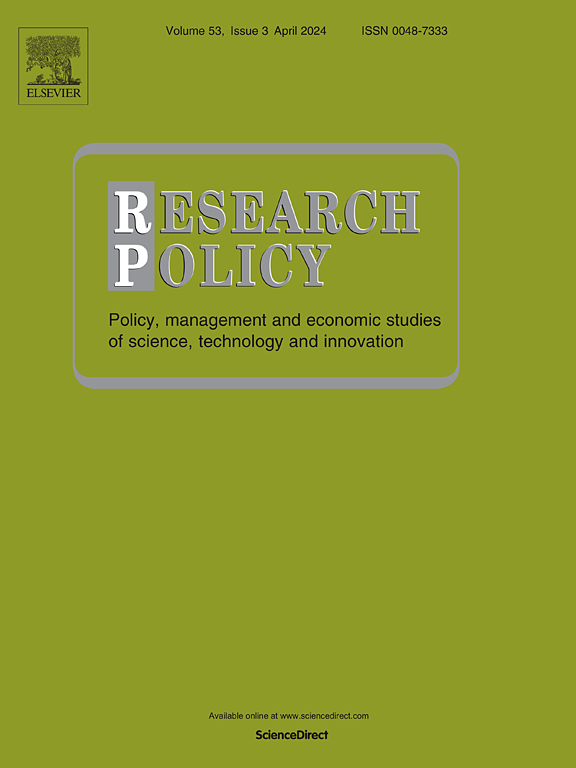University–business collaboration: A collaboration readiness index and scale
IF 8
1区 管理学
Q1 MANAGEMENT
引用次数: 0
Abstract
An important aspect of innovation relates to collaborations between industry and universities or research institutes. These collaborations benefit small and medium enterprises (SMEs), yet they may struggle to engage in them. When collaborations do occur, SMEs are often unprepared. In response to this phenomenon, this note presents a stage-based collaboration readiness index for SMEs, coupled with a diagnostic instrument (scale) to determine where they fit on the index. The purpose is to enable SMEs, researchers, facilitators, funding bodies, and other stakeholders to better target efforts, resources, and support. We collected data from two databases, one to develop and another to confirm the validity and reliability of the scale. The resulting 5-point readiness index ranges from considering collaboration to networking, cooperating, engaging, and partnering. The diagnostic instrument contains questions that address organizational ethos and culture, capabilities and resources for collaborations, and receptiveness to work with universities and research institutes. We conclude with guidelines for using the Collaboration Readiness Index and theoretical, practical and policy implications.
大学-企业合作:合作准备指数和规模
创新的一个重要方面涉及产业界与大学或研究机构之间的合作。这些合作使中小型企业(SMEs)受益,但它们可能难以参与其中。当合作发生时,中小企业往往毫无准备。针对这一现象,本文为中小企业提供了一个基于阶段的协作准备指数,以及一个诊断工具(规模),以确定它们在指数中的位置。其目的是使中小企业、研究人员、促进者、资助机构和其他利益相关者能够更好地确定努力、资源和支持的目标。我们从两个数据库中收集数据,一个用于开发,另一个用于确认量表的有效性和可靠性。由此产生的5点准备指数范围从考虑协作到网络、合作、参与和伙伴关系。诊断工具包含的问题涉及组织精神和文化、合作能力和资源,以及与大学和研究机构合作的接受程度。我们总结了使用协作准备指数的指导方针以及理论、实践和政策含义。
本文章由计算机程序翻译,如有差异,请以英文原文为准。
求助全文
约1分钟内获得全文
求助全文
来源期刊

Research Policy
MANAGEMENT-
CiteScore
12.80
自引率
6.90%
发文量
182
期刊介绍:
Research Policy (RP) articles explore the interaction between innovation, technology, or research, and economic, social, political, and organizational processes, both empirically and theoretically. All RP papers are expected to provide insights with implications for policy or management.
Research Policy (RP) is a multidisciplinary journal focused on analyzing, understanding, and effectively addressing the challenges posed by innovation, technology, R&D, and science. This includes activities related to knowledge creation, diffusion, acquisition, and exploitation in the form of new or improved products, processes, or services, across economic, policy, management, organizational, and environmental dimensions.
 求助内容:
求助内容: 应助结果提醒方式:
应助结果提醒方式:


